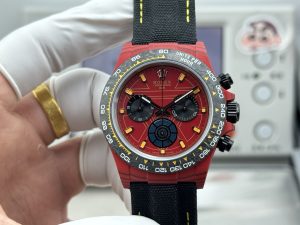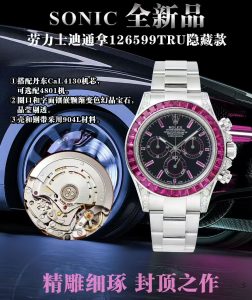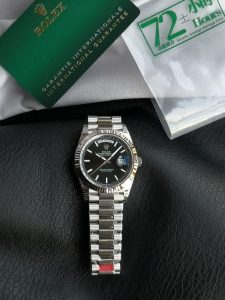In the world of horology, few names evoke the same sense of prestige as IWC’s Portugieser collection. Known for its meticulous design and precision engineering, the Portugieser series has long been synonymous with luxury and craftsmanship. Among the many iterations, the 42mm rose gold IWC Portugieser with its custom 52010 automatic movement stands out. However, ZF, a prominent player in the replica watch industry, has introduced a replica version of this iconic timepiece. This article delves deep into the nuances of this replica, exploring its craftsmanship, ethical considerations, branding implications, and the broader economic and psychological aspects at play.
The Craftsmanship Behind ZF’s Replica
Before delving into the replica itself, it’s crucial to understand what makes the original IWC Portugieser special. The watch’s 42mm case crafted from rose gold, paired with a clean, elegant dial, embodies the brand’s commitment to timeless design. The custom 52010 movement, known for its seven-day power reserve, is a testament to IWC’s engineering prowess. In replicating such a masterpiece, ZF has taken significant strides to ensure their product mimics these aesthetic and functional characteristics. While the replicated movement can’t entirely capture the complexity of the original, it offers an impressive approximation that caters to those seeking the look and feel of luxury without the associated price tag.
Ethical and Economic Considerations
Opting for a replica watch is fraught with ethical dilemmas. On one hand, the affordability of replicas democratizes access to luxury aesthetics, challenging the traditional exclusivity of high-end brands. However, it simultaneously raises questions about intellectual property rights and the economic sustainability of the luxury market. From an economic standpoint, the replica offers a significant reduction in price while providing a similar stylistic experience. This poses a threat to the original brands, who rely on the scarcity and perceived value of their craftsmanship to maintain their market position.
Branding and the Psychology of Luxury
The branding of luxury watches like the IWC Portugieser hinges on the notion of exclusivity and status. The allure is not solely in the watch’s functionality but in its role as a social signal. Replicas disrupt this dynamic by providing a nearly identical appearance without the exorbitant cost, thereby challenging the notion of luxury as an inaccessible good. This democratization can erode the brand’s value proposition, which is primarily visual and experiential rather than technical.
Personal Value and the Replica Debate
The decision to purchase a replica, such as ZF’s rendition of the IWC Portugieser, often reflects personal values and financial realities. For some, the replica represents a savvy financial decision—a way to enjoy the aesthetics of luxury without significant financial outlay. For others, it is a compromise on ethical grounds. The personal value derived from owning such a replica can vary greatly, highlighting the subjective nature of luxury consumption. Ultimately, the choice between an original and a replica can reflect broader attitudes towards consumerism, authenticity, and social signaling.
In conclusion, the ZF replica of the IWC Portugieser offers a fascinating case study in the intersection of craftsmanship, economics, and social psychology. It underscores the ongoing tension between the allure of brand prestige and the growing appeal of accessible luxury, inviting us to reflect on what truly constitutes value in the world of high-end watches.




